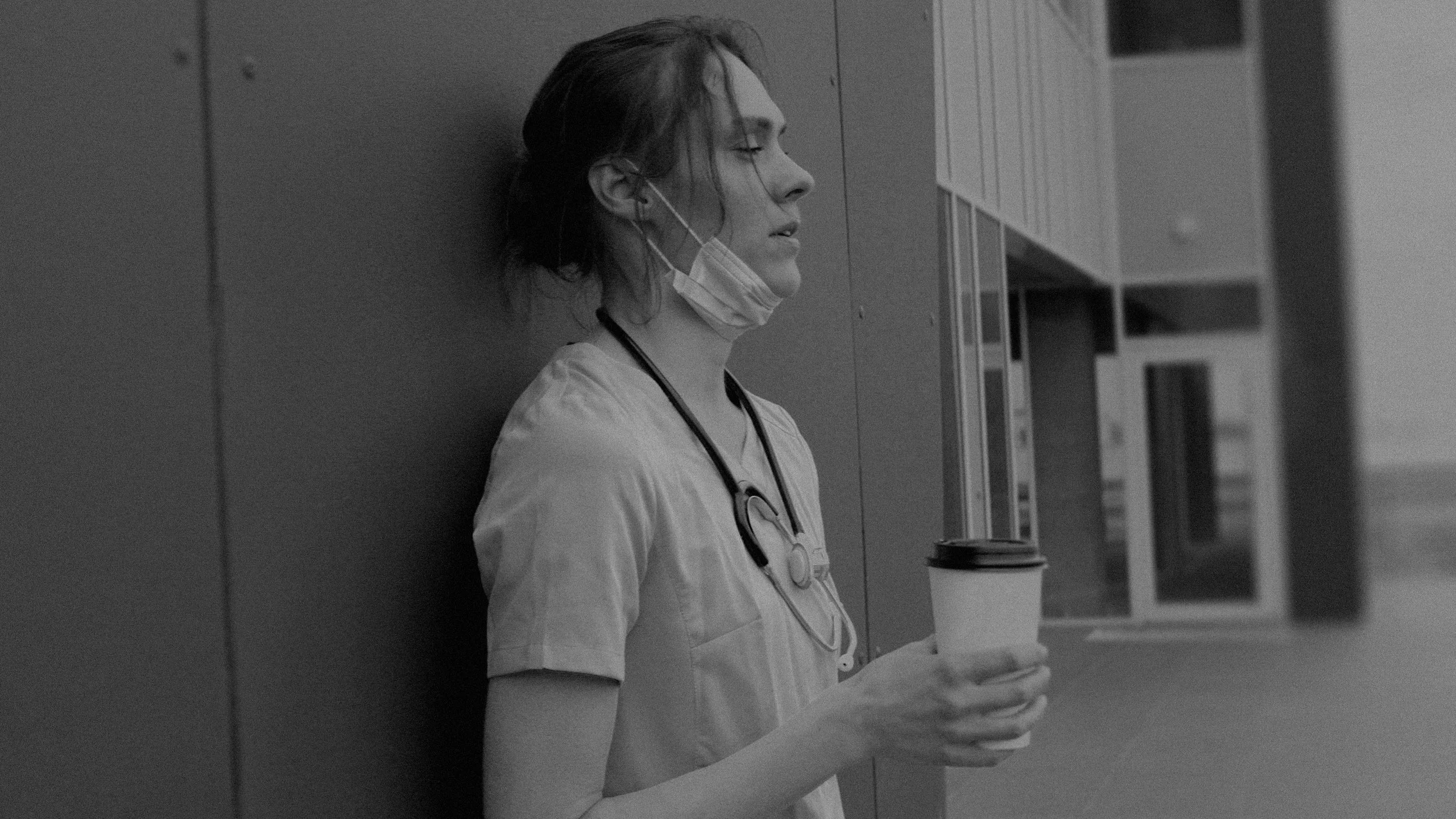
Code
Black
& Blue
Every day, in every Ontario health-care setting, nurses and health-care professionals face an escalating onslaught of violence and abuse. The impact on their physical and mental health is a major contributor to burnout and thousands of nurses leaving the profession.
Nurses have had enough and are demanding change. Their lives and the lives of their patients depend on it.
It’s time to protect nurses.
Make safe staffing a priority.
The amount of violence nurses experience is shocking.
“Unfortunately, violence is our norm.
It’s become part of our job to be abused.”

Under attack in Ontario’s broken health-care system.
Nurses have become the target for patients and families frustrated by the shortcomings of our overburdened health-care system.
In the past year alone, 63 per cent of nurses say they have experienced physical violence, such as pushing, hitting, and punching, with 89 per cent saying they’ve experienced verbal abuse. Another 31 per cent said they did not report incidents for fear of repercussions.
In what workplace is it acceptable to be pushed, spit at, kicked, punched, or strangled? Where insults and threats are hurled at you, but you are expected to continue working without support?
This is what the Ford Conservatives and employers deem acceptable for nurses and health-care professionals in Ontario.
Violence
Burnout
Declining care quality
Retention
Recruitment
The solution is safe staffing.

“In order to have safe working environments – you have to have safe patient ratios.”
Doug Ford isn’t listening to nurses.
Doug Ford claims his government have added thousands of nurses. But the actual numbers tell a different story. Nurses are still leaving the profession in record numbers due to unsafe staffing levels and workplace violence.
Ontario’s health-care system is suffering a death by a thousand cuts, all while the Ford Government continues its goal of further privatizing Ontario's public health care.
Doug Ford’s numbers don’t add up
The government’s numbers ignore the fact that for every two new nurses hired, one is leaving the profession. It’s not just bending the truth. It’s covering up the reality nurses face at work.
Ontario is dead last
Ontario has the lowest number of registered nurses per capita in Canada. The Financial Accountability Office (FAO) reported in 2022-23 that Ontario's healthcare spending per capita was the lowest of all – $876 below the average of other provinces. If British Columbia can mandate safe nurse staffing ratios, there is no reason Ontario can’t.
unequal protection
Statistics show health-care workers are much more likely to be injured by workplace violence than other first responders. Nurses are often alone with patients, especially when making home visits, and don’t have the meaningful post-traumatic support that police and firefighters receive. The obvious question: why doesn’t the government support health-care workers the same way they do male-dominated professions?

Safety in numbers
Nursing ratios – having a safe number of patients for each nurse to care for – are proven to enhance the quality of care patients receive. For every additional patient a nurse takes on, a patient’s chances of suffering complications or dying increases by seven per cent. But safe staffing also dramatically improves the health-care system as a whole, while protecting front-line workers by reducing violence and burnout.
proof that nurse-to-patient ratios work
Sacramento California experienced a 69 per cent decrease in nursing vacancies within four years following the implementation of ratios. In Victoria Australia, the number of employed nurses grew by more than 24 per cent, with more than 7,000 inactive nurses returning to the workforce, after the implementation of ratios.
retaining experienced nurses
25 per cent of nurses in overcapacity workplaces considered leaving their jobs. When Ontario loses its experienced nurses to burnout, it loses that wisdom and skill forever. It doesn’t matter how many new nurses we add, the overall quality of care goes down when experienced nurses leave. Safe staffing means less burnout and higher retention of our experienced nurses, leading to higher overall quality of health care.
Safe staffing
saves lives.
It’s time to protect nurses and
health-care professionals.
Send your MPP a message in support of Ontario’s home-care nurses.


